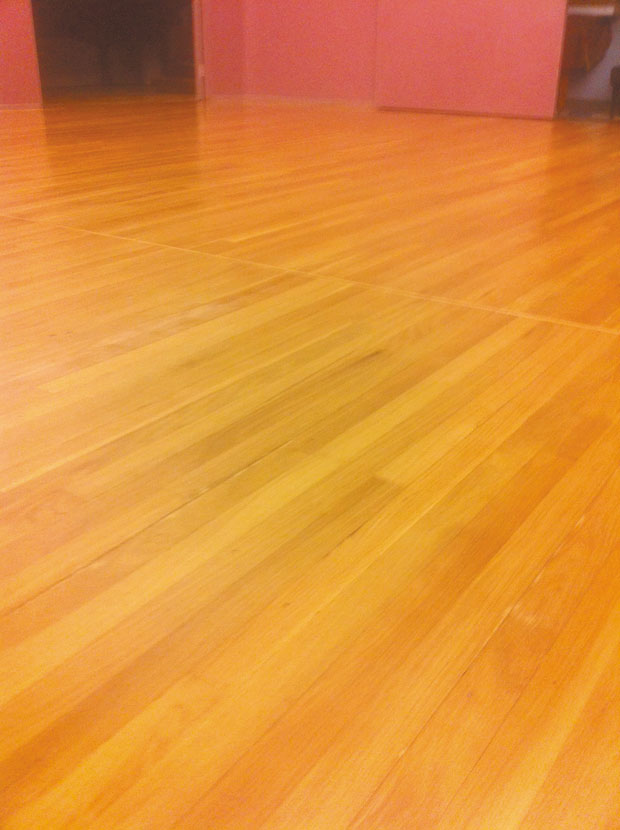BY ALLEN CANTER
Modern technology has improved the manufacturing process for engineered wood flooring, enabling huge price variation, depending on the quality of the finished product. Engineered was developed for below grade applications. Today, it has multiple uses. My preference is what was created by God. He always has made things naturally, for man’s use, that would benefit His creation.
Solid hardwood flooring is the preference of industry experts. Its durability and longevity has always been impressive. Recently, we sanded and finished a home that had 103-year-old Douglas Fir floors. It looked brand new, and still has 20 years of beauty to enjoy before recoating. Engineered wood floors have maybe one sanding available, and free floated floors have none. Also, the factory finish of an engineered floor can never be duplicated.
Wood is a dynamic medium. Like all organic materials, it has a character and quirks, responds to the environment and changes over time. Because of its “personality,” wood should be treated with understanding and a certain amount of care.

For wood professionals, knowing about the properties of wood in general, as well as those of individual wood species, is critical to proper installation. For consumers, it’s important to have realistic expectations about how wood will perform.
As a flooring material, wood is superior to vinyl or carpet, both practically and aesthetically. A solid wood floor is more than a covering. It adds strength and stability to the floor system. A one-inch thickness of wood has the same insulating value as 15 inches of concrete.
Wood is durable and long lasting — occasional sanding and refinishing essentially results in a brand new floor. Wood floors do not retain mildew or absorb dust, simplifying cleaning.
The hardness of solid wood, compared to engineered, is a game changer. The Janka Hardness Rating, established by the U.S. Department of Agriculture, measures solid wood floor for its ability to withstand denting and wear. It measures the force it takes to embed a .444-inch steel ball to half its diameter in wood.
For example, Oak has a rating of 1290; Douglas Fir 660; Santos Mahogany 2200. The hardest, best species is Brazilian Walnut — known as IPE — which is rated at 3680.
We currently offer a 5-inch wide solid IPE for $17.99, until the end of August. This includes normal, nail down installation with sand and finish.
Allen Canter is a member of the National Wood Flooring Association Certified Professionals (NWFA). He is a certified wood flooring inspector, certified sales advisor and Hawaii li-
ALLEN CANTER CONTRACTING
contact // 282-8922
email // patlenfineart@aol.com
See more articles from: Allen Canter Contracting